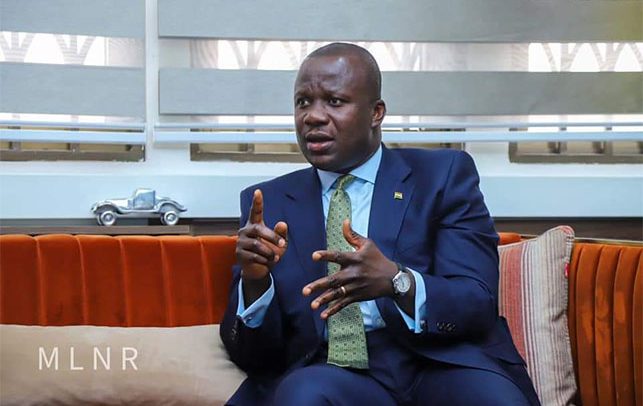Samuel Abu Jinapor
GOVERNMENT HAS indicated it is developing a roadmap to work with stakeholders in the country’s small-scale mining sector to properly coordinate small-scale mining.
Such measures would be similar to the annual environmental (AKOBEN) audit and posting of Reclamation Bonds by large-scale mining companies, under the supervision of the Environmental Protection Agency (EPA), as well as audits conducted by the Minerals Commission.
Samuel Abu Jinapor, Minister of Lands and Natural Resources, who disclosed this at the opening of a 3-day World Gold Council workshop yesterday in Accra, said “We cannot have one aspect of the industry promoting environmentally-sound practices, while the other is destroying the gains made. We must work together, and with host communities, to safeguard our environment, and provide opportunities for host communities to reduce the appetite for venturing into dangerous activities like illegal mining.”
According to him, even after all mineral resources, in their natural state, were vested in the President in 1962, small-scale mining continued to co-exist with large scale mining, although informally, and without any regulation.
“In 1989, Government decided to regularise and regulate the small-scale mining industry, through the passage of the Small-Scale Gold Mining Law, 1989 (PNDCL 218), which reserved this industry for only Ghanaians.
“Since its formalisation, gold production from small scale mining has increased from some Five Hundred Thousand ounces (500,000oz) in 1990 to almost three million ounces (3,000,000oz) in 2020. Today, the small-scale sector contributes about a third of our total gold production. Unfortunately, as a result of its impact on the environment in recent years, small scale mining has, sadly, become associated with environmental degradation and water pollution.
“…Ladies and Gentlemen, large-scale mining and small-scale mining, are two sides of the same coin. They are both aimed at exploiting our mineral resources for the benefit of our people, using different methods and resources. They can, and they must, mutually co-exist. I must commend, here, some of your members, who have voluntarily ceded part of their concessions for community mining schemes. But that should just be the beginning, large scale mining companies that use highly skilled methods must work closely with small scale miners to ensure that they, also, mine responsibly.”
Mr. Jinapor continued “As you are aware, Environment, Social and Governance issues are taking centre stage, globally, and have become the basic standards for regulating and evaluating institutional performance based on environmental responsibility, social welfare and economic growth. And these principles are not only applicable to large scale mining, but applies, equally, to small scale mining. Large scale mining companies, however, have the capacity and the resources, to set the pace, and carry along small-scale miners.”
He continued, “The vision of President Akufo-Addo, to make Ghana the mining hub of Africa, where all mining and mining related activities, from exploration to downstream production, and from research to innovation, will be centred, requires that we promote both large and small-scale mining industries, and invest in value addition to ensure that the mining industry has adequate linkages to other sectors of the economy. Government is fully committed to this course. Let us, therefore, work together, and build a responsible, viable, sustainable and environmentally-sound mining industry, both large and small scale, for the good of our country and our planet.”
BY Ebenezer Amponsah

